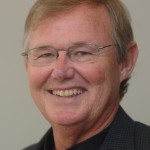RIP Eugene Short: Hattiesburg's and JSU's shooting star
Posted on: March 24,2016

Rick Cleveland
This was 1970 in Hattiesburg, where, until then, Hattiesburg High had fielded all-white basketball teams and cross-town Rowan had been all-black. Both had been traditional winners through the years but neither had won a state championship.
That was about to change.
At Rowan, there was a tall, lean basketball marvel, Eugene Short. He was listed at 6 foot, 6 inches tall but played more like 6-10 or even 7-feet. He jumped so high and had the wingspan of a much taller man. The whispers had begun the previous year that Short would transfer to Hattiesburg High.
We saw him for the first time in pick-up games at the old Sports Arena at Southern Miss. UTEP coach Tim Floyd, who also has coached two NBA teams, remembers.
“None of us had ever played against a black athlete at that time,” Floyd says. “And then here came Eugene, and it just so happened that the first time we ever played with and against a black guy, we got smacked in the face by the most beautifully gifted and graceful talent we had ever seen. He was so smooth. None of us could believe how great he was. I will never, ever forget that jump shot.”
Tragically, the rest of the world would never know.
Eugene Short, who was 62, died last week in Texas and will be buried in Hattiesburg Saturday.
Floyd has spent most of a lifetime recruiting high school players from all over the USA, but he always goes back to Eugene Short.
“If I had to pick one high school player to go win a game, it would be Eugene Short,” Floyd said this week. “In my opinion, for whatever it is worth, I believe Eugene Short to be the most talented basketball player I have ever seen from the state of Mississippi.”
Purvis Short? Mahmoud Abdul Rauf? Clarence Weatherspoon? Monta Ellis? Jonathan Bender? Al Jefferson?
“At his peak,” said Floyd, “give me Eugene Short. He could do it all.”
I covered that 1971-72 Hattiesburg High basketball team for The Hattiesburg American. They were half-black, half-white and all well-coached by Johnny Hurtt. They won 38 games, lost two and won the overall state title.
Jud Vance, who now lives in Tupelo, was a guard on that team.
“Eugene was just so talented,” Vance said. “He was the point man on our full-court press and he had those unbelievably long arms. I can’t tell you how many times he stole the ball or forced a bad pass. And, man, he could jump. I remember when he hit his head on the backboard at the state tournament and had to play the rest of the game with stitches and bandages.”
Remember, this was the cusp of integration. Short had never had white teammates. Vance had never had a black one.
“I don’t remember any black-white issues with Eugene,” Vance said. “I’m not saying we didn’t have any in school but Eugene got along with everyone. He was so quiet and reserved. I don’t remember him ever raising his voice, period.”
Two years behind Eugene at Hattiesburg High was his younger brother, Purvis Short, who was very much in Gene’s shadow. Purvis was the proverbial late bloomer who would later lead Hattiesburg to another state championship and would follow Eugene to Jackson State.
Then, and to this day, there have been comparisons between the two. My two cents: Eugene was the more talented and the better high school player. Both were fantastic at Jackson State. Purvis became by far the better professional, and we’ll get to that.
They played together one season at Jackson State. In the 1974-75 season, Eugene averaged 26 points per game, Purvis 15 points a game and the SWAC regular season champion Tigers finished 25-4.
Following his junior season at JSU, Eugene Short was the ninth pick of the NBA draft by the New York Knicks. Three years later Purvis was the fifth pick of the NBA draft by the Golden State Warriors.
Purvis Short averaged 17.2 points per game for 13 NBA seasons. He once scored 59 points in a game.
By comparison, Eugene played parts of two NBA seasons with the Knicks and Seattle and played in 34 games, scoring a total of 84 points.
Eugene’s coach in Seattle was none other than Hall of Famer Bill Russell, one of the greatest players in basketball history. Floyd says once, several years ago, he had the occasion to ask Russell about Eugene Short.
“I told Russell Eugene and I were from the same hometown and had been teammates and that I just always wondered how it was that Eugene did not become an NBA star,” Floyd said. “Russell told me that Eugene was one of the most talented players he had ever seen.
“But he said that Eugene was going through what he now thinks were bouts with severe depression, that there were days Eugene couldn’t even get out of bed or leave his hotel room. Back then, they didn’t really know what to do.”
So sad. The rest of the basketball world, the NBA, never got to see the real Eugene Short. Friends say Eugene’s depression seemed to worsen once his basketball career ended. Later in life, he developed debilitating issues with diabetes. Again, so sad.
In many ways, his life was that of a shooting star, a meteor. But folks in Mississippi, especially Hattiesburg, remember when the star named Eugene Short shone brightest of all.



